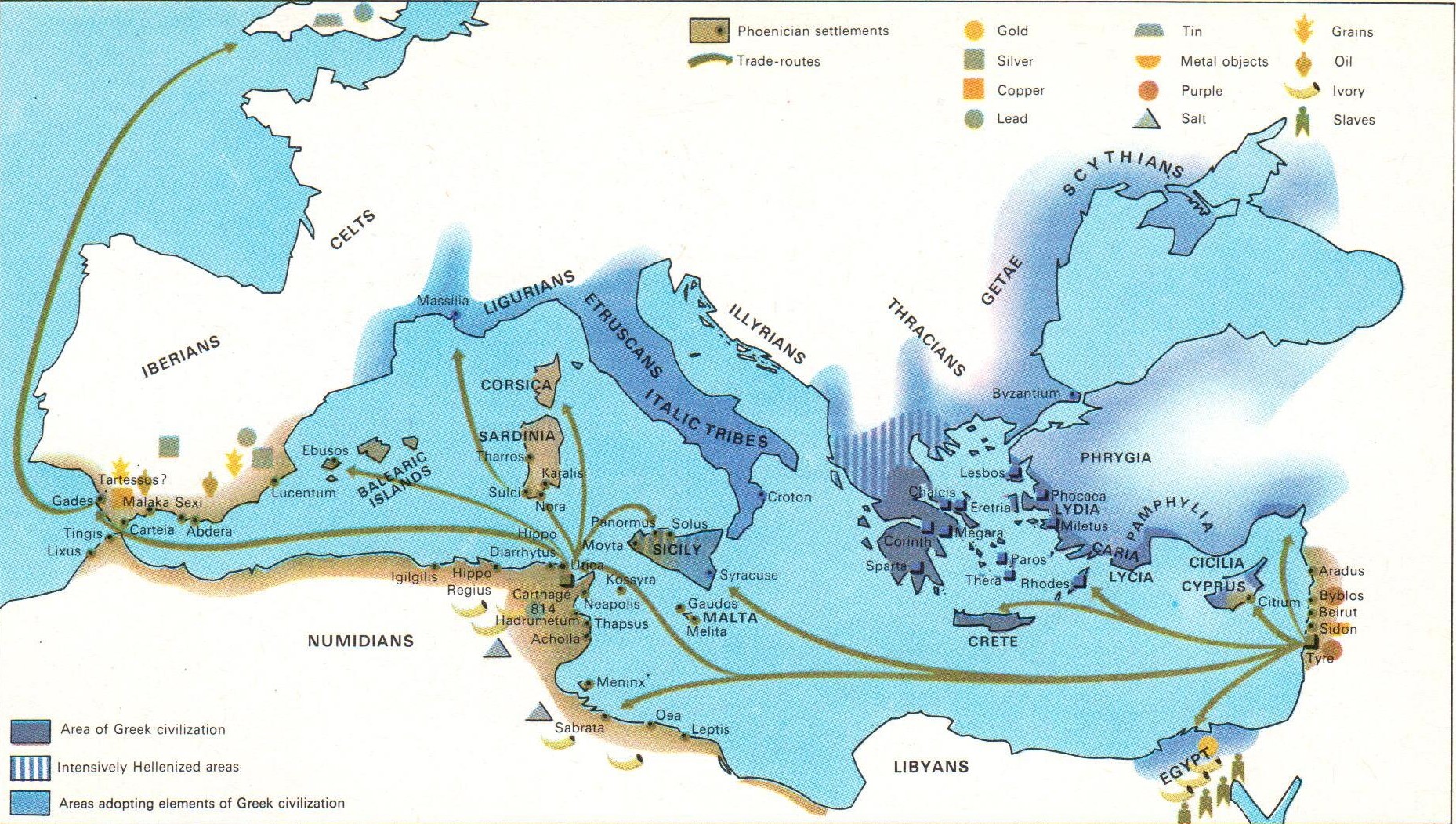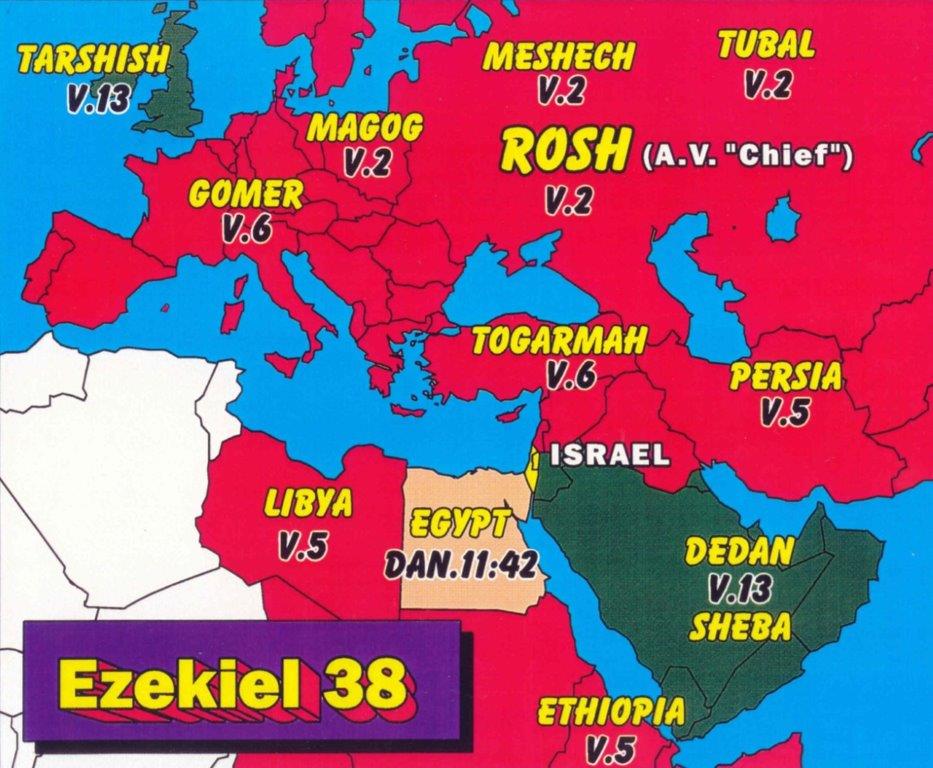BREXIT
Britain has now left Europe. In the last week of 2020 the trade deal was concluded. The Brexit process initiated with British referendum decision of June 2016, that Britain would leave the European Union, has now been completed. This is a very significant development in the world. Why? Because Britain being separate from Europe was predicted in the Bible 2500 years ago and so Christadelphians have been expecting this for many years . It is also a big step towards the return of Christ and the establishment of God’s kingdom on the earth.
This video gives a brief 10 minute introduction to why Brexit is so significant and how it is predicted in Bible Prophecy. Brexit is an exciting change.
Why does Britain have to leave Europe?
Britain had to leave Europe as required in several Bible prophecies. A key one of these is Ezekiel chapter 38. In the map it shows the identification of the place names in Ezekiel 38. In this amazing chapter of prophecy, the countries shown in red join with Russia in invading and conquering the land of Israel. The relevance of Brexit is that Europe (Gomer and Magog) goes with Russia to invade Israel, but Britain (Tarshish) opposes the invasion of Israel. While Britain was in the EU it could not be in a war on the opposite side to Europe. So Ezekiel 38 requires that Britain had to leave the EU – and now it has happened.
You may well say, how can we be sure that these place names in Ezekiel 38 are the nations (or groups of nations) shown on the map? Here are some quick proofs.
Rosh is Russia
In Ezekiel 38:2 the expression “the chief prince” should read “the prince of Rosh”. Rosh is a Hebrew proper name here and refers to Russia (see Footnote 1). Gesenius Hebrew lexicon says concerning “Rosh” – “undoubtedly the Russians”.
Magog is central and eastern Europe
Identification of Magog as being central and eastern Europe comes from ancient historians. The Jewish Historian Josephus (who wrote wrote in about 70AD) identifies Magog with the Scythians:
Magog founded those that from him were named Magogites, but who are by the Greeks called Scythians” (Josephus, Antiquities of the Jews, Book 1, VI 1)
Herodotus, a well known historian, who wrote about 450BC describes the territory of the Scythians as being north of the Black sea, between the river Don (Russia) and the river Danube – hence encompassing central and Eastern europe.
Gomer is Western Europe
The Jewish historian Josephus says of Gomer:
Gomer founded those whom the Greeks call Galations (Gauls)” (Josephus “Antiquities of the Jews” Book 1, VI, 3)
The Gauls (or Galatians) is a well known ancient name for France and adjacent countries. Encyclopedia Britannica says:
Gaul, French Gaule, Latin Gallia, the region inhabited by the ancient Gauls, comprising modern-day France and parts of Belgium, western Germany, and northern Italy.
Tarshish is Britain
How do we know that Britain is Tarshish? Many Bible scholars think the Tarshish is Tartessos in Spain or Carthage of North Africa. So how can we be sure Britain is Tarshish. The table below shows the attributes of Tarshish given in the Bible uniquely fit Britain. It is noted that Tarshish has to fulfil the requirements of the scriptures given concerning her at the time Ezekiel wrote, but also must meet the requirements of Tarshish in the latter day fulfilment of the prophecy.
| Attribute | References |
| An island Power | Isa 60:9, Psa 72:10 |
| Maritime power | Isa 60:9 |
| To the extreme west of Israel | Jonah 1:3, Isa 23:6-7 |
| Merchant power | Ezek 38:13 |
| Symbol of lion | Ezek 38:13 |
| Source of Tin | Ezek 27:12 |
| Alliance with Israel | Ezek 38, Isa 60 |

The other places proposed to be Tarshish don’t meet the requirements. Tartessos was not an island power, nor does it have an alliance with Israel. Similarly, Carthage is not an island power, was not a source of tin and does not have an alliance with Israel. One of the key proofs that Britain is Tarshish is it being a source of Tin. Tin was rare in the days of Ezekiel, but in great demand as it was used in making bronze (biblical brass) for weapons. Ezek 27:12 shows that the Phoenicians sourced Tin from Tarshish
“Tarshish was thy merchant by reason of the multitude of all kind of riches; with silver, iron, TIN, and lead, they traded in thy fairs.”
The map above from the “Penguin Atlas of World History” shows that the only source of Tin the Phoenicians had was from Britain. Wikipedia on “Sources of tin in ancient times” says:
“The only Bronze Age object from Central Europe whose tin has been scientifically provenanced is the Nebra sky disk, and its tin (and gold, though not its copper), is shown by tin isotopes to have come from Cornwall (Haustein, Gillis & Pernicka 2010). In addition, a rare find of a pure tin ingot in Scandinavia was provenanced to Cornwall (Ling et al. 2014). Available evidence thus points to Cornwall as the sole early source of tin”
Tarshish’s role after Christ’s return
Isa 60 describes the glory of Zion in the kingdom – hence after the return of Christ. Tarshish is mentioned in V9 “Surely the isles shall wait for me, and the ships of Tarshish first, to bring thy sons from far, their silver and their gold with them, unto the name of the LORD thy God, and to the Holy One of Israel, because he hath glorified thee.”
So Tarshish will be the first to accept Christ and bring Jews back to the land (including those Jews sent out of Israel at Armageddon – Zech 14:2). However Europe will be not doing this. Instead Europe, the beast of Rev 17, will be making war against Christ. Rev 17:14 “These shall make war with the lamb”. Similarly Psa 72:10 shows that Tarshish will bring presents to Christ in the Kingdom, whereas Europe will make war with Christ. Hence Britain has to be separate from Europe.
Christadelphian Teaching – Britain separate from Europe
From the time when John Thomas wrote Elpis Israel (1850) Christadelphians have taught Britain has to be separate from Europe. Elpis Israel part 3, p293 says “Britain cannot be included among them (the toes of Europe)”. Graham Pearce wrote in Milestones to the Kingdom in 1981 (p18-19) “though we don’t know how it will happen, Britain will separate from Europe”. He also wrote in Milestones to the Kingdom in 1989 (p69) “It should be obvious that Britain, biblically, has no place in Europe when Christ comes”. Paul Billington wrote in 1990 in “Guardians of Israel and Arabia” (p24) “She (Britain) is therefore perforce, not part of the European system when these prophecies are finally fulfilled … Britain’s eventual exit from Europe is a certainty”
Footnotes
- The Hebrew word Rosh is mostly used as a common noun. However in a few places it is a proper noun (a name) as it is in Ezekiel 38 & 39. Another place it is used as a proper noun is in Gen 46:21 “And the sons of Benjamin: Bela, Becher, Ashbel, Gera, Naaman, Ehi, Rosh, Muppim, Huppim, and Ard“

